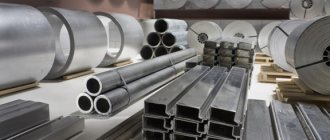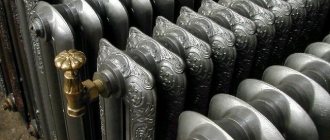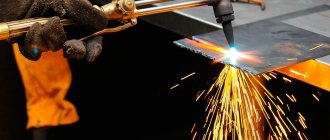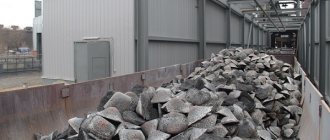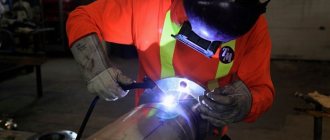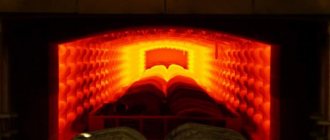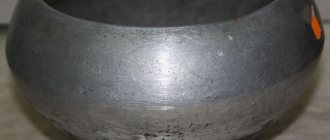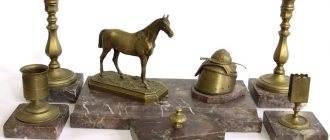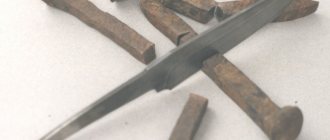Steel composition
The basis of the composition is iron and carbon. The alloy usually contains no more than 2.14%.
The main classification criterion is chemical composition. All products on the market are divided into two main types of raw materials:
- Carbon steel. In addition to iron and carbon, it also contains phosphorus, sulfur, manganese and silicon. Depending on the percentage of carbon, the raw materials are divided into high-, medium- and low-alloy grades. This material can be used even if you are faced with the task of creating a tool that is used under constant voltage and high loads.
- Alloy steel. Additional alloying elements are added to the main components. These include many types of substances, from silicon, boron and nitrogen to chromium, zirconium, niobium, tungsten and titanium. This affects not only the cost, but also the quality of the product, area of use and characteristics. On sale you will find many types of products - heat-resistant, case-hardening, temperable steels. Depending on the structure, the raw material can be hypoeutectoid, ledeburite, eutectoid and hypereutectoid.
The properties and uses of steel can be determined by its grade.
Various impurities can be added to the steel composition. Depending on the quantity they are presented in the recipe, there are two main types of products:
- Ordinary quality. The composition of such an alloy contains no more than 0.6% carbon. The main standards used in production are GOST 14637 and GOST 380-94. Many types of products are labeled as “St”, which means standard quality. This type of raw material is one of the most affordable on the market.
- Qualitative. This category includes alloy and carbon varieties. The labeling already indicates the specific composition, the amount of carbon in hundredths. The main standard that manufacturers adhere to is GOST 1577. Such steel costs more than a product of ordinary quality. At the same time, the material is much more plastic, welds well and is perfectly protected from mechanical stress.
Is steel fashionable?
Indeed, both in the Old and New Worlds they willingly buy it under the motto “Steel is the new gold!” Buyers like this material for its more than affordable price, health safety, noble appearance and variety of product designs. Steel jewelry can be made in any style: from classic and ethnic to avant-garde and brutal rock. Not only the inherent mirror shine of steel is relevant. Modern technologies make it possible to give “strong-willed” material a spectacular matte appearance. This makes the finished jewelry even more expensive in the eyes of everyone who sees it on you.
Steel jewelry SL: ring with cubic zirconia; bracelet; earrings with cubic zirconia SL (price on the link)
Basic properties of steel
When ordering a material, you need to consider what properties the steel must have in order to be suitable for a specific application. If you do not understand this feature, there is a risk of purchasing raw materials that do not meet the strength, level of corrosion protection, weldability quality and other characteristics.
Let's consider the main characteristics of the material.
Mechanical
Shows which processing options can be selected and where to use them. There are several main parameters:
- Strength. Shows how much load can be applied to a part until the first signs of failure appear. For each grade of material, this parameter is indicated, as well as the yield strength.
- Tensile strength. Indicates that the material is protected from mechanical stress.
- Yield limit. Gives an idea of the stretchability of the material. This helps to understand how far the material can be stretched until the process continues even when the load is no longer applied.
- Plastic. So that the material can be used in the manufacture of various types of parts and workpieces. This characteristic helps the raw material change shape; it is prescribed to determine the parameters of the relative bending angle and elongation.
- Impact strength. Directly related to the limits of dynamic loads. The characteristic indicates how much impact a finished product or workpiece can withstand before it begins to completely collapse.
- Hardness. Shows the maximum load over the area before indentation occurs. It can be determined by different methods, both Brinell and Vickers.
Physical
The parameters make it clear whether it is possible to use steel in construction or various fields of industry. There are three significant central indicators:
- Density. The specification encodes what mass of steel is contained in the specified volume. The higher the strength, the greater the protection from deformation, strong pressure and other potential threats.
- Thermal conductivity. The parameter gives an idea of how quickly heat is transferred through the workpiece. The parameter is very important for industry, for example, in the manufacture of radiators or pipes for heating mains.
- Electrical conductivity. Allows you to assess the safety of using the material in places where there is a risk of electric shock. The alloy can also be selected for installation in areas where its conductive characteristics are important.
Chemical
The entire set of parameters gives an idea of how the material will behave in different temperatures or environments with varying degrees of aggressiveness. There are four main parameters:
- Oxidability. The oxidation process is caused by contact of the metal with oxygen and can be stimulated by an increase in temperature. The level of oxidation is affected by the carbon content and the environment in which the products are used. The greater the exposure to oxidation, the faster rust will appear on the surface.
- Corrosion protection. Specified for different environments. May change when used outdoors or when in contact with water or soil.
- Heat resistance. Helps to understand at what heating corrosion begins to gradually develop on the metal. The characteristic is directly related to oxidability.
- Heat resistance. It differs from heat resistance in that it does not affect corrosion resistance and scale protection, but the strength itself. Knowing the parameters will help you understand to what temperature the workpiece will heat up before it can be broken or deformed.
Technological
Shows the possibility of processing using various technologies. Central parameters:
- Ductility. The higher it is, the faster it will be possible to shape it under constant external mechanical influence.
- Fluidity. If this parameter is at a high level, the molten material will be able to better fill voids.
- Weldability. Helps to connect various workpieces together. It varies depending on the type of welding used and the alloy itself.
- Machinability. Steel can be processed with different types of cutting tools to create rolled metal products and parts with different parameters and areas of application.
What kind of steel is used in jewelry?
High-quality stainless steel 316L (code 03Х17Н14М3 according to GOST) - it is also surgical, it is also jewelry. Simply put, jewelers use the same alloy that goes into scalpels, implants and parts of medical equipment, housewares and cutlery. It is durable, very resistant to corrosion and damage, and hypoallergenic. It is no coincidence that piercings - jewelry that must literally be worn on the body - are made of 316L steel (but! for primary piercings, until the puncture has healed, it is recommended to wear a titanium product).
On a note! Stainless steel was invented in 1913 by British metallurgist and scientist Harry Brearley while working on alloys for gun barrels.
Application of steel
The mechanical and chemical properties of steel directly affect where it can be used. The easiest way to determine the scope is by the brand indicated on the raw materials. Thus, products with good heat resistance can be used in environments where there is a risk of exposure to constant high temperatures. The same applies to grades characterized by good weldability and corrosion resistance.
By area of production, several main categories can be distinguished:
- Construction. They are used to create metal structures of various sizes, fittings, and wall cladding. The required characteristics differ depending on the application. Thus, for some types of alloy, resistance to corrosion in humid environments is important, for others, protection against oxidation upon contact with soil is important. But all types of raw materials used must be well welded and have increased strength under constant or periodic strong mechanical pressure. In combination with affordability, which is important for builders, low-alloy alloys and conventional quality options have these parameters.
- Instrumental. Used for the manufacture of tools for various purposes. All alloys are divided into three categories. The first is used to create stamped parts. The second is in the production of cutting tools, the third is for measuring with high accuracy. The best solution would be to order high-alloy and high-carbon materials. They are not only well protected from wear, but are also hard and have good thermal conductivity.
- Structural. Diverse in scope of use: used for metal structures, as well as for parts and large mechanical components. The best solution is to use an alloy with a small proportion of manganese. Alloying allows you to expand the list of useful characteristics. Experts recommend paying attention to high-strength, automatic, wear-resistant and other brands.
You can also always order materials with special characteristics for a specific application area. These can be alloys with increased heat resistance, or those that are protected from oxidation upon contact with oxygen, that melt well, that are electrically conductive, and many others.
What are the advantages of steel over other materials?
Steel jewelry SL: ring with cubic zirconia;
earrings; bracelet with cubic zirconia (prices via links) Steel does not lose its “new” appearance for a very long time. At the same time, it is much more durable than precious metals, does not oxidize and does not darken over time, and is not afraid of the effects of salt (sea) water, ultraviolet radiation, various acids - the same as orange juice accidentally spilled on a hand with a bracelet or ring. Let us repeat, steel does not cause allergies (strictly speaking, an allergy to gold and silver is our body’s “rejection” of contact with base metals included in jewelry alloys of gold and silver of various grades). It is very difficult to damage steel jewelry - scratch it, get a dent. Finally, the advantage is the price, and also the fact that, despite their low cost, steel products look very, very decent.
On a note! 316L stainless steel, unlike some jewelry alloys, does not contain lead - a metal dangerous to our body
Designer products
On city streets you can see original installations made from ferrous metal waste.
Various animal sculptures, frames for flower beds or other crafts fit organically into the urban landscape.
There are also more original products of folk craftsmen.
Small souvenirs made from scrap ferrous metals are suitable both for gifts and as exclusive items.
Different directions are used as ideas.
Military theme
Inlaid flasks, handles made from shells, and tank models will be an excellent addition to congratulations on Defender's Day.
Camping equipment
Homemade
- mugs,
- knives,
- spoons,
- openers
simply irreplaceable for dinner near the fire.
Decorations on the shelf
Beautiful little things sometimes resemble Lefty's products with their sophistication and grace.
Writing instruments
Such unique ferrous metal crafts as:
- stand for stationery,
- pens,
- ashtrays and other accessories.
Fishing gear
Do-it-yourself spinners and weights,
For more information about making crafts from ferrous metal waste, watch the video:
Step-by-step production
You can learn how to make metal crafts with step-by-step instructions and training videos. It is not necessary to look for a specialist in this field or try to negotiate training. It is important to prepare the required materials, tools, and perform the work in stages.
Rose
Consumables and tools:
- welding machine;
- wire;
- sharpening stone;
- grinder with discs, hammer;
- metal scissors;
- pliers;
- paint for metal surfaces.
Rose making process:
- The petals of the future flower began to be cut out of the leaf. They must be of different sizes so that the rose turns out natural and beautiful.
- Use a sharpening stone to trim the edges of the petals.
- Twist the metal rod into a spiral using pliers.
- Boil the bases of the petals. Round them at the top in different directions with pliers.
Additionally, you need to make a stem, leaves, and thorns. After making the craft, you need to coat it with metal paint.
Metal rose (Photo: Instagram / kuznya161)
Butterfly
A butterfly can be made from wire. It is important that it is strong, but remains flexible. Manufacturing principles:
- To avoid breaking the wire, work must be done by hand, without tools.
- Twist the ovals, which will later become wings. It is recommended to steal them inside with ornaments and decorative elements.
- It will be easier to make the body from a scrap of metal rod that needs to be wrapped with wire.
- Add thin wire antennae.
All that remains is to paint the finished craft with silver or gold paint.
Owl
It is easier to make a metal owl flat. Manufacturing:
- Draw the future owl on a piece of paper.
- Transfer the design to a sheet of metal.
- Carefully cut out the shape of the future owl.
- From separate sheets, cut out small semicircular blanks that will be feathers.
- Separately cut out the eyes and wings.
- Scratch indentations on the wings and feathers with a sharp tool.
All that remains is to connect the parts together and paint the owl. Forging birds in volume is a complex task that will require practical skills.
Owl (Photo: Instagram / i_ron_art)
Rat
Consumables, tools:
- metal sheets;
- steel rods;
- welding machine;
- metal pipe;
- drill with accessories;
- grinder with discs;
- wire;
- metal scissors;
- metal balls.
Mouse manufacturing process:
- Cut two identical parts from the metal pipe. Make several vertical slits on one of the segments to make a cone. Repeat the procedure with another segment.
- Weld two cones together so that one is placed horizontally on top of the other. Clean the weld seam.
- Make 4 more small cones that will be the rat's paws. Weld them to the body with the head.
- The tail will be a wire.
- All that remains is to weld the ears from oval metal plates and the mustache from thin wire.
The last stage is painting.
Metal rat (Photo: Instagram / oleg_turkovskiy)
Fish
It is better to make fish from wire. Manufacturing:
- Draw a sketch of the future fish.
- Lay the wire over the drawing so that you trace it along the contour.
- Tie the individual parts together with thin wire.
Fill empty spaces with decorative elements.
Why are some steel jewelry colored?
Jewelers widely use the so-called PVD coating (translated from English as Physical Vapor Deposition - physical vapor coating). It gives steel various shades and colors: yellow, bronze, dark brown, pink, blue-black and others, and also additionally protects the jewelry from mechanical damage, in particular scratches. In a vacuum environment, by exposing steel to molecules of other metals, a thin and very durable coating is obtained that does not lose its tone over time.
Steel jewelry SL: pendant; bracelet; piercing with cubic zirconia (price on the link
Profitable sale of ferrous metal
to receive pennies for handing over scrap metal, while spending a lot of time and effort on bringing in old parts. Therefore, owners prefer to store worn-out items in a garage or shed, in the hope that someday it will all gain value.
It is not necessary to accumulate this junk for years, cluttering up useful space. There are quite affordable ways to sell it at a good price and free up space in the utility room.
Through the Internet
A cast-iron bathtub, a heavy radiator or a base for a sewing machine - it would seem like rubbish, but someone has been hunting for such things for many years.
You can photograph them and put them up for sale on the appropriate website (Avito, From Hand to Hand, etc.). It will take no more than half an hour.
But there is a chance to get rid of things you don’t need quite quickly.
Selling on the market
There is no need to sit in the market with rusty files or nuts. to hand over this little thing to traders than through scrap metal collection points.
Direct sale
Small private enterprises engaged in figured forging and casting are interested in purchasing high-quality ferrous scrap. If one of these companies is located nearby, you can offer them your metal at a price slightly higher than what they offer at the recycling collection point.
So, scrap ferrous metals:
- gland,
- cast iron,
- become,
- stainless steel
can be taken to recycling collection points. It may be more profitable to sell it online, sell it on the nearest market, or sell it to a company that deals with figured forging and casting.
How to choose steel jewelry?
A high-quality accessory cannot cost less than 150 rubles if we are talking, for example, about a ring of a simple design. A temptingly low price tag is inherent in non-factory jewelry from China, Korea and other Asian countries, made from steel with unsatisfactory characteristics. Such a product can rust, darken, and break.
Steel jewelry is a product subject to certification. The seller must have a certificate that says “Piercing Jewelry” in black and white (this is true even if you are buying costume jewelry).
On a note! A steel ring, unlike a silver or gold one, cannot be enlarged (stretched) or reduced (compressed). Steel is too strong a material, so when buying jewelry it is better not to make mistakes with the size


